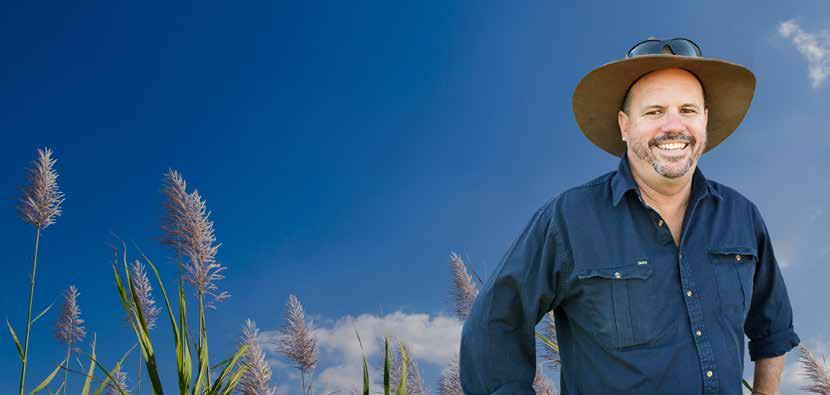
3 minute read
From the Chair
By Owen Menkens CANEGROWERS Chairman
After a disrupted start to the season, it has been good to see paddocks drying out over the past few weeks and the harvest finally in full swing across most districts.
The question most growers are now asking is whether the crop will hold up. Due to the late finish last year, I am hearing that the crop may drop off if we don’t get any more substantial rain events.
This will hopefully mean an earlier finish and a lot less standover, which in turn will bode well for the 2024 season. If we can get all the ratooning done earlier, it does make a major difference to the following crop. With the world sugar price hovering around $900 a tonne for the 2023 season and $800 for the 2024 season, we need as much cane at the mill as we possibly can.
The world price is at unprecedented levels for this year and the coming years. This is good news for the industry and should lead to more investment, and a reduction in debt levels.
Being dependent on the world price can be a fickle game, as prices do tend to move around a lot.
Free trade is very important for us as an industry, so we need to get rid of as many trade distorting tariffs and subsidies as possible.
CANEGROWERS CEO Dan Galligan and I were in Canberra a few weeks ago, talking to the trade minister Don Farrell about the current negotiations for the EU free trade agreement.
The Australian Government rejected the proposal put forward by the EU in July, basically because it was not a great outcome for the sugar, beef and sheep meat industries. The parties will come together again for more discussions in October, but we will keep working with the government to try to achieve the best possible outcome for growers.
The EU is not and will never be a big market for us due to distances involved and the protections the EU puts in place for its beet growers. It is a premium market though, and any decent increase in raw sugar access would be beneficial.
CANEGROWERS is closely involved in all trade negotiations, and it was good to meet with the actual negotiators at the Department of Foreign Affairs and Trade to give them some perspective on what we are hoping for.
We also met with the Minister for Agriculture, Fisheries and Forestry Murray Watt, to discuss trade and biosecurity issues.
Biosecurity is fundamental to the survival of our industry, so the Federal Government needs to be across this area in order to provide appropriate funding.
In its budget in May the government announced a biosecurity levy on industry, which was not particularly helpful given the uncertainty around how the money will be managed or charged.
Keeping destructive pests, weeds and diseases out of the country is important to all Australians, but especially the agricultural sector.
Fire ants, pigs and other invasive pests and diseases are a real problem for many growers and a properly funded biosecurity system is vital to maintaining a healthy agricultural sector.
The Minister was informed of these issues and generally understood our concerns, but the management of biosecurity does fall under the State Government control.
Our next QCGO board meeting will be held in Proserpine on 12 October. The board holds regional meetings every year. These meetings are a good opportunity to catch up district directors.
Let us hope the crush continues well over the next month.






